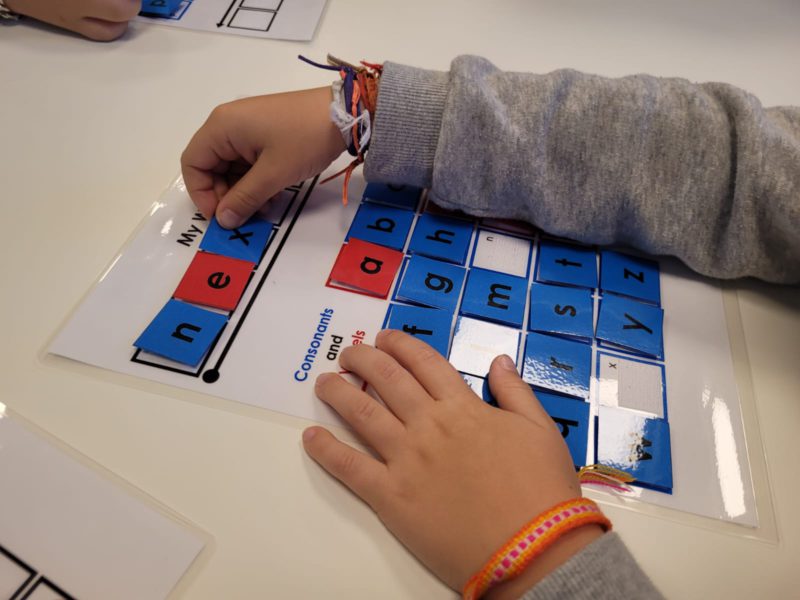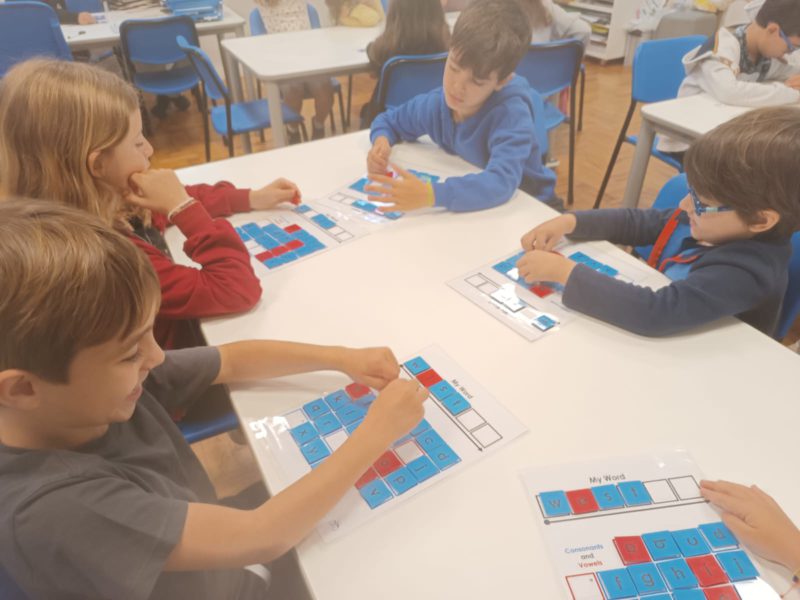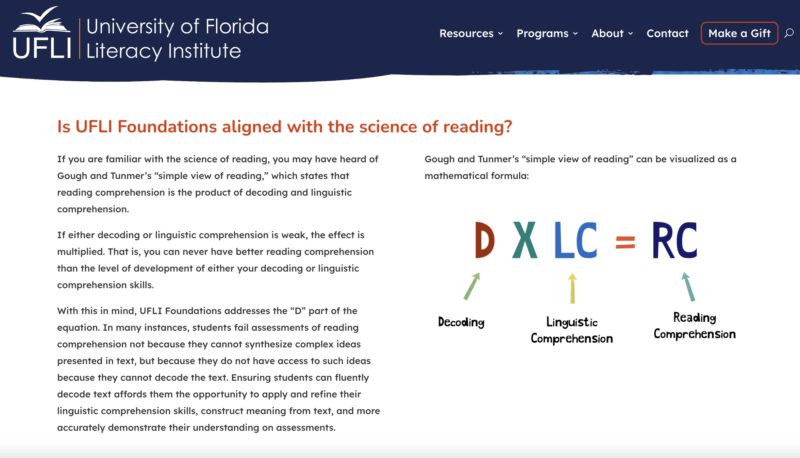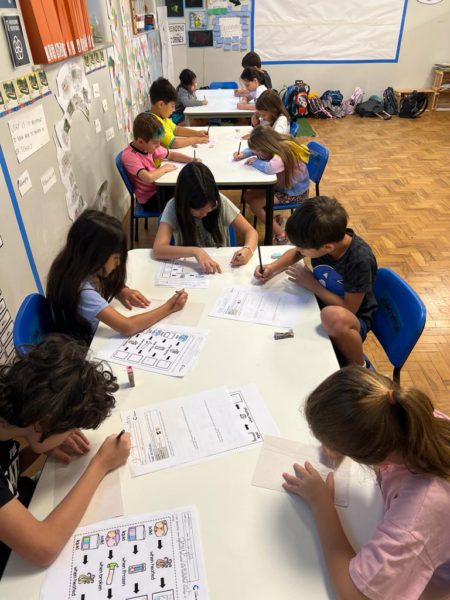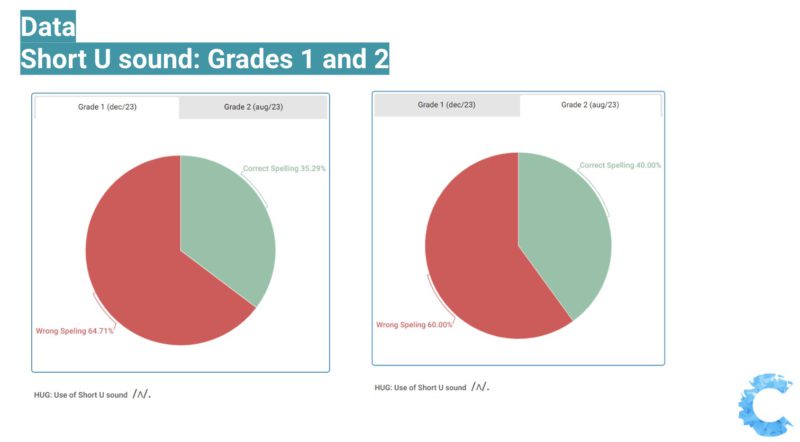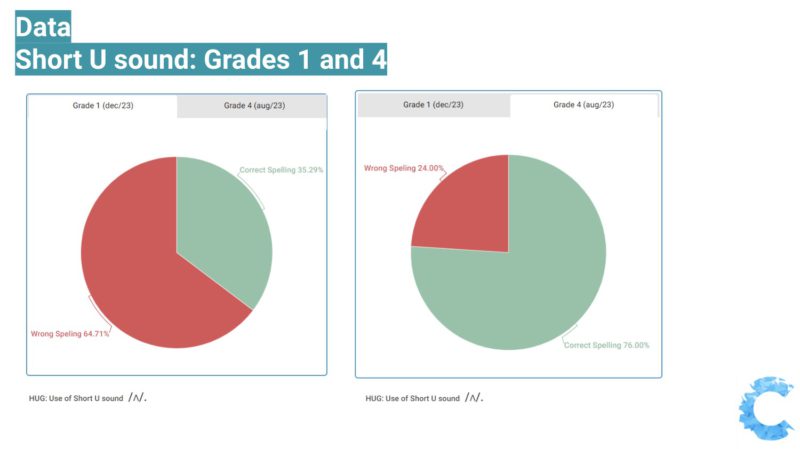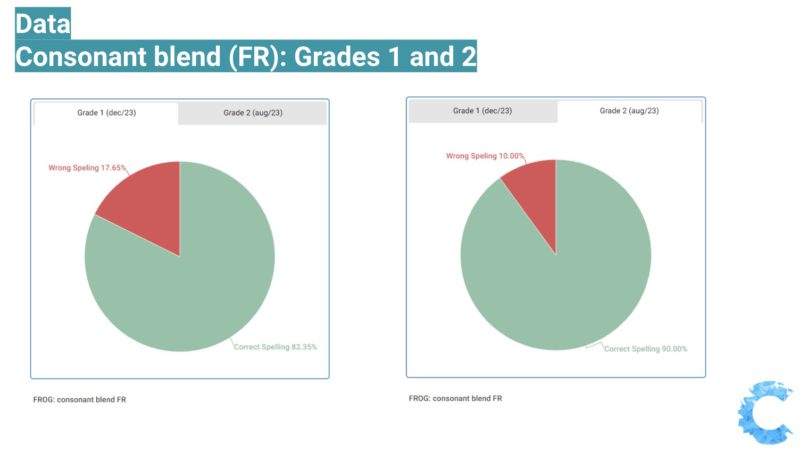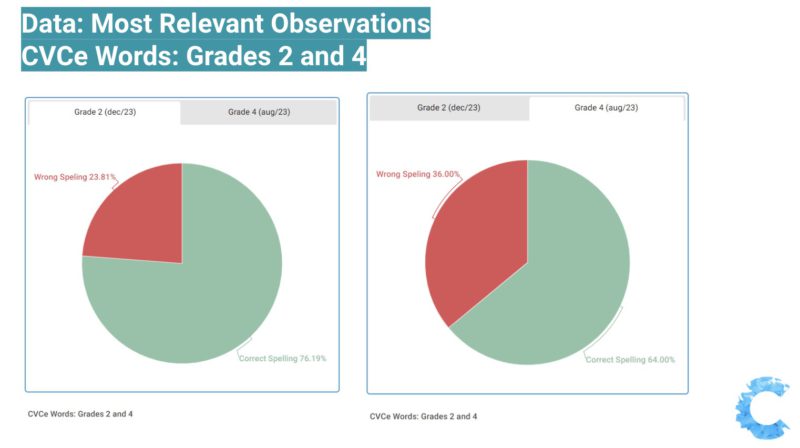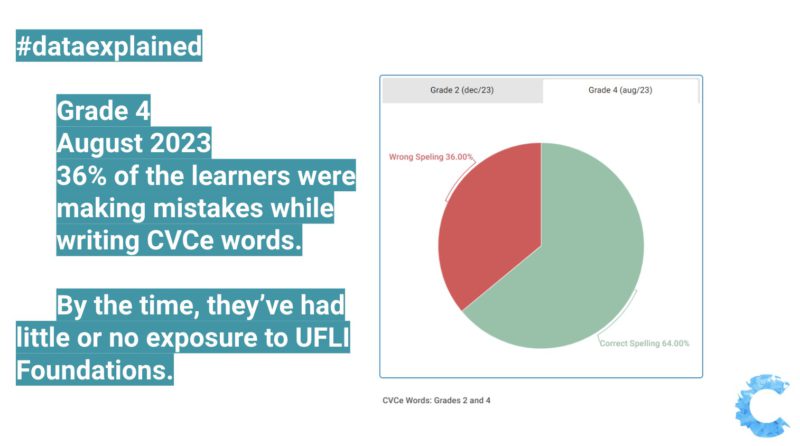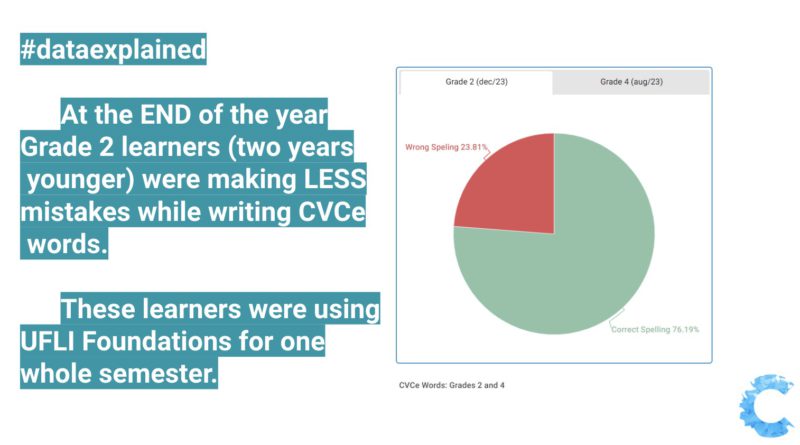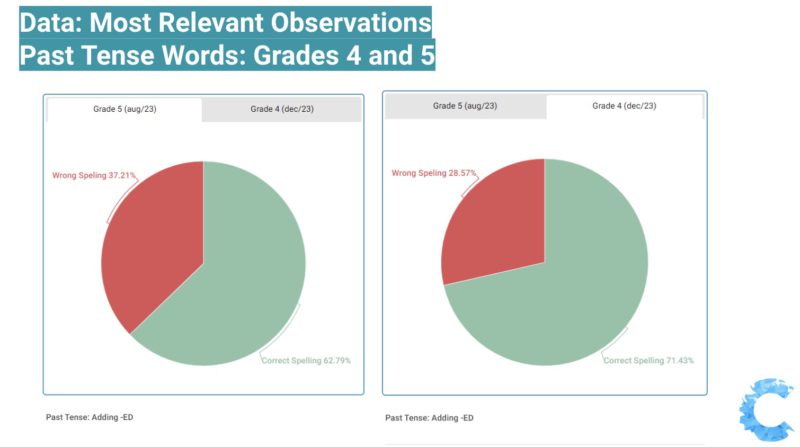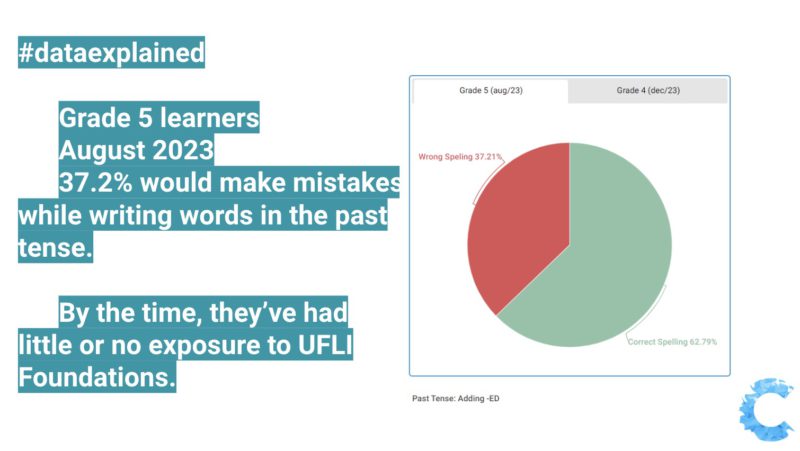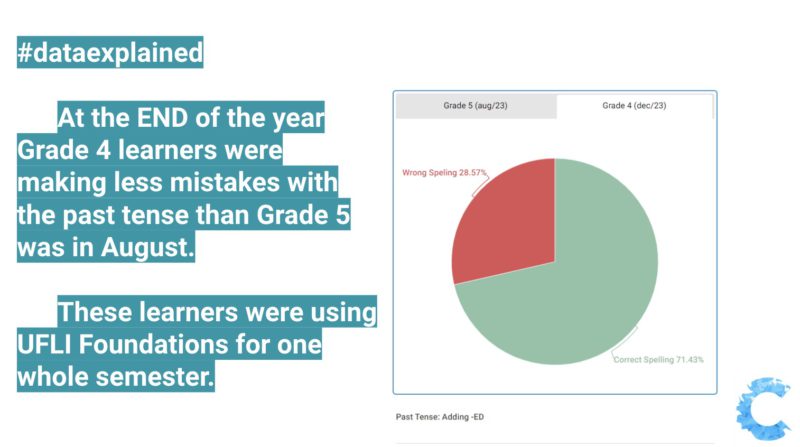UFLI Foundations
What are the visible spelling and writing improvements observed in the lower school division within the first semester after implementing the University of Florida Literacy Institute (UFLI) Foundations and materials?
General topic of interest
The main idea of this research was to measure the improvements in learners’ literacy process after implementing the UFLI (University of Florida Literacy Institute) materials, approach, scope, and sequence.
Participants
This research was conducted with learners from grades 1, 2, 4, and 5. At least one full group of each of these grade levels has participated in the research.
Literature Review
Understanding UFLI Foundations
UFLI Foundations is a material aligned with the Science of Reading which approaches the teaching of decodification of words. According to its own website:
(...) UFLI Foundations addresses the “D” (decoding) part of the equation. In many instances, students fail assessments of reading comprehension not because they cannot synthesize complex ideas presented in text, but because they do not have access to such ideas because they cannot decode the text. Ensuring students can fluently decode text affords them the opportunity to apply and refine their linguistic comprehension skills, construct meaning from text, and more accurately demonstrate their understanding on assessments.
Data collecting approach
Pre and post-dictation exercises involving words with specific spelling rules were applied in groups of grades 1, 2, 4, and 5.
Data collection tools/resources
To collect data on spelling improvements throughout the semester, I conducted dictation exercises at the beginning and end of the term with representative classes from each grade level: Grades 1, 2, 4, and 5. The dictations involved words with specific spelling rules, providing a focused assessment of the students' spelling proficienc over the course of the semester. This methodology allowed for a targeted examination of spelling improvements within each grade, facilitating a comprehensive analysis of the impact of instructional approaches on spelling skills.
Emerging results
The collected data indicates a positive correlation between the utilization of the University of Florida Literacy Institute (UFLI) Foundations and the systematization, enhancement, and acceleration of spelling rule acquisition within the lower school, particularly in the final years. The observed improvements highlight the potential of UFLI Foundations in fostering effective learning outcomes.
Reflections
Moving forward, it is crucial to extend this research to track the longitudinal impact over subsequent years of implementation. This longitudinal perspective will provide valuable insights into the sustained effectiveness of the UFLI Foundations in facilitating ongoing spelling rule development and proficiency in the lower school division.

